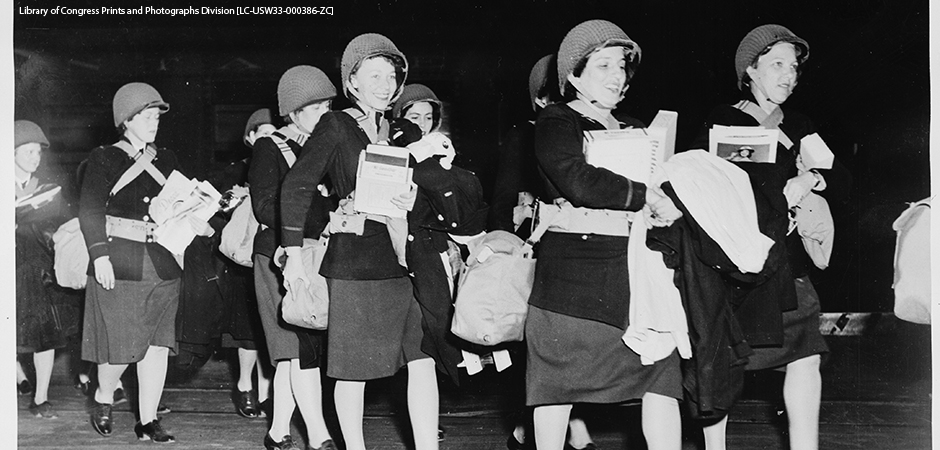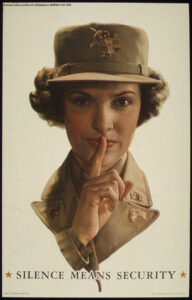
When you think about the role women played in World War II, you probably think about nurses or factory workers like “Rosie the Riveter.” But some women took on other wartime responsibilities. This week btw takes a closer look at Virginia Hall. Hall, known as the “Limping Lady,” served the Allied forces bravely as one of the most notorious spies in history.
Who Was Virginia Hall?
Hall was born into a wealthy family in Baltimore, Maryland, in 1906. From the time she was young, Hall knew that she wanted to join the foreign service. She attended Radcliffe and Barnard for college, studied in Europe, and then took a job as a clerk at the U.S. Embassy in Warsaw, Poland. From there, she transferred to Ismir, Turkey. In Turkey, at 27 years old, she accidentally shot herself in the foot while bird hunting. Gangrene set in, and her left leg was amputated below the knee. For the rest of her life, she had a wooden leg (which she named “Cuthbert”).
Hall had a dream to serve the government as a foreign diplomat. When she applied, she was told that she was ineligible because of her amputated leg. So instead, when World War II began, she decided to drive an ambulance in France. Hall noticed that she was treated better than other drivers for being an American and female. She started thinking about how she might be able to use that to her advantage.

After Germany invaded France in 1940, Hall made her way to England and volunteered to serve with the British Special Operations Executive as a secret agent. She was trained in weapons, security, and resistance techniques. Hall returned to Nazi-occupied France in 1941, disguised as an older American woman reporting for the New York Post newspaper. She was only the second female agent to serve in France, and the first one to hold an active role in the field.
Becoming the “Limping Lady”
For the rest of World War II, Hall helped escaped prisoners of war, set up safe houses, helped downed Allied pilots return home, and organized Resistance networks. She spoke fluent French and German, so she could listen in on the Nazi’s plans. She scouted locations to blow up railroad tracks, delaying the resupply of German troops. Hall also helped free Allied prisoners, smuggling them messages and tools hidden in cans of sardines. Her code name was “Diane.” It was during this time that the Germans gave her the nickname “the limping lady,” (because of her wooden leg). She became one of the German military’s most wanted people in France.
When it became clear that the Germans were determined to capture Hall, she was forced to flee France. She escaped the country on foot, walking up to fifty miles a day over the Pyrenees Mountains via a 7,500-foot-high pass. She eventually made it to Spain, where she was arrested for an illegal border crossing. When the U.S. Embassy released her from prison, Hall requested a return to France to continue her resistance. Her superiors thought this was too dangerous, so she returned to the United States.
After the War
When World War II ended, Hall was sent to Venice, Italy, because she spoke fluent Italian. In Italy, she once again worked in intelligence. From there, she took a job with the National Committee for a Free Europe. In 1951, Hall began her career as a founding member of the CIA. Hall worked for the CIA for fifteen years, until she retired in 1966. During that time, she served in a variety of roles. Mostly, she aided resistance groups that were working to overthrow Communist control in Eastern European countries.
Hall is the only civilian woman in history to have been awarded the Distinguished Service Cross. She also received a Croix de Guerre from France, and an MBE (Member of the Most Excellent Order of the British Empire) from the Great Britain. She died in 1982. In 2019, the movie “A Call to Spy” was released to popularize the story of Virginia Hall and other women spies who served in World War II.
